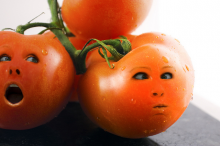
In 2015, Swiss agrochemical giant Syngenta was granted a patent on a tomato derived from classical breeding but a broad coalition of organisations has now started a joint opposition in an effort to achieve the revocation of the patent. The European Patent Office (EPO) granted Syngenta a patent for a tomato with a higher content of compounds called flavonols. Flavonols are known for their health benefits and are said to help prevent cardiovascular diseases and certain cancers. Patent EP1515600, which was published in the August 12th issue of the European Patent Register, covers the tomato plants, seeds and fruits. The “invention” is described as “flavonol expressing domesticated tomato and method of production”. However, the tomato was simply developed by crossing wild tomatoes from Latin America with domesticated varieties and is thus not genetically engineered. Although European patent law prohibits patents on plant varieties and classical breeding methods, the Enlarged Board of Appeal of the EPO ruled in March 2015 in a controversial decision on the precedent cases of broccoli and tomato, that plants obtained by “essentially biological processes” are patentable. The EPO has already granted about 180 patents on plants derived from conventional breeding and about 1400 such patent applications are still pending. The coalition “No Patents on Seeds!”, which is supported by many non-governmental and farmers’ organisations from all over Europe, strongly disapproves of this practice which they consider an unacceptable interpretation of European patent law. In their oppositon against Syngenta’s patent they argue that it is a well known fact that lines of wild tomatoes can be crossed with commercially traded varieties. Thus, the processes covered by the patent and the resulting plants are not an invention. The organisations warn that the patent would provide a monopoly on all plants with the respective characteristics, the seeds and even the fruits and food derived thereof. They regard the patent a case of biopiracy. The signatures against the tomato patent will be collected and then handed over to a patent lawyer who will file a joint opposition. With this appeal, the organisations of “No Patents on Seeds!”also want to send a strong political signal against all patents on life in general, especially on plants and animals. (ab)
